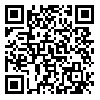Volume 23, Issue 90 (11-2023)
refahj 2023, 23(90): 9-51 |
Back to browse issues page
Download citation:
BibTeX | RIS | EndNote | Medlars | ProCite | Reference Manager | RefWorks
Send citation to:



BibTeX | RIS | EndNote | Medlars | ProCite | Reference Manager | RefWorks
Send citation to:
khanzadeh joryabi E, momeni F, shakeri A. (2023). An investigation into the impacts of the existence of “Dowrehs” on Dynamism of Social Capital in the Second Pahlavi Government. refahj. 23(90), 9-51. doi:10.32598/refahj.23.90.4118.1
URL: http://refahj.uswr.ac.ir/article-1-4058-en.html
URL: http://refahj.uswr.ac.ir/article-1-4058-en.html
Abstract: (3077 Views)
Introduction: "Dowrehs" were informal groups within the Second Pahlavi regime that were formed from the acquaintance of individuals with various social positions, but all of which were created through social capital and with the aim of earning rent and corruption; in this article, we focus on this question that did the "Dowrehs" in the second Pahlavi government have this capability to lay the groundwork for systematic corruption through bonding social capital and lack of linking and bridging social capital?
Method: The approach of the descriptive-analytical article and research method is qualitative and based on document analysis during the second Pahlavi regime and the combined model of this research is inspired by Huberts's ecological approach to corruption.
Findings: Our findings indicate that in the second Pahlavi regime, social capital in any form has an effective relationship with corruption through the Dowreh, but the nature of this relationship is depending on the type of social capital; therefore, it should be said that the "absence" of linking and bridging social capital and the "existence" of bonding social capital linked to corruption with a direct relationship.
Discussion: The existence of the Dowrehs signaled that there was no other way to advance everyday affairs without the use of bonding social capital, and that this made the circle of loyalty of individuals to their acquaintances larger than the circle of their loyalty to the national community; thus institutional roles had become a means of complying with non-institutional demands that leading to systematic corruption. The general solutions to prevent this situation are to increase the radius of trust and to create structures and norms for creating positive social capital.
Method: The approach of the descriptive-analytical article and research method is qualitative and based on document analysis during the second Pahlavi regime and the combined model of this research is inspired by Huberts's ecological approach to corruption.
Findings: Our findings indicate that in the second Pahlavi regime, social capital in any form has an effective relationship with corruption through the Dowreh, but the nature of this relationship is depending on the type of social capital; therefore, it should be said that the "absence" of linking and bridging social capital and the "existence" of bonding social capital linked to corruption with a direct relationship.
Discussion: The existence of the Dowrehs signaled that there was no other way to advance everyday affairs without the use of bonding social capital, and that this made the circle of loyalty of individuals to their acquaintances larger than the circle of their loyalty to the national community; thus institutional roles had become a means of complying with non-institutional demands that leading to systematic corruption. The general solutions to prevent this situation are to increase the radius of trust and to create structures and norms for creating positive social capital.
Type of Study: method |
Received: 2022/03/15 | Accepted: 2023/07/11 | Published: 2023/11/27
Received: 2022/03/15 | Accepted: 2023/07/11 | Published: 2023/11/27
Send email to the article author
| Rights and permissions | |
 |
This work is licensed under a Creative Commons Attribution-NonCommercial 4.0 International License. |








